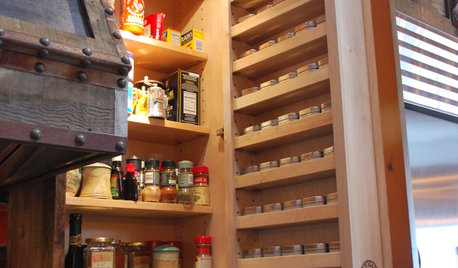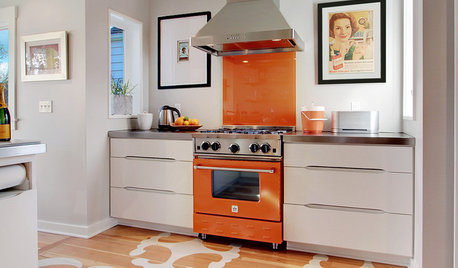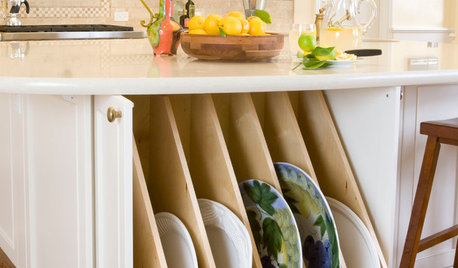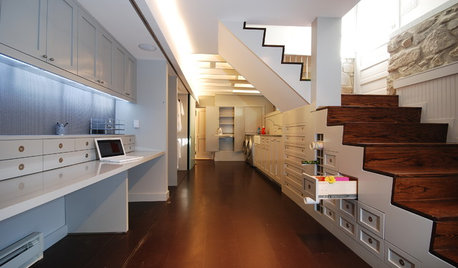Thoughts on basement canning kitchen for retail
2ajsmama
13 years ago
Related Stories

MOST POPULARTrend Watch: 13 Kitchen Looks Expected to Be Big in 2015
3 designers share their thoughts on what looks, finishes and design elements will be on trend in the year ahead
Full Story
KITCHEN DESIGN7 Steps to Pantry Perfection
Learn from one homeowner’s plan to reorganize her pantry for real life
Full Story
TASTEMAKERSPro Chefs Dish on Kitchens: Michael Symon Shares His Tastes
What does an Iron Chef go for in kitchen layout, appliances and lighting? Find out here
Full Story
KITCHEN DESIGNKitchen of the Week: Creativity Shines in Seattle
Clever floor stencils and reused materials keep this Seattle kitchen true to its 1917 roots
Full Story
KITCHEN DESIGNKitchen Confidential: Amp Up Your Storage With Pullouts
See 12 types of cabinet pullouts that make your cooking and cleaning items easier to find and use
Full Story
KITCHEN DESIGNCountertop and Backsplash: Making the Perfect Match
Zero in on a kitchen combo you'll love with these strategies and great countertop-backsplash mixes for inspiration
Full Story
BASEMENTSDesign Workshop: Is It Time to Let Basements Become Extinct?
Costly and often unnecessary, basements may become obsolete — if they aren’t already. Here are responses to every reason to keep them around
Full Story
BASEMENTSBasement of the Week: Warm Modernism in a Notable 1930s Home
Wood, leather and warm browns give the basement in this Keck and Keck home in Chicago an inviting air
Full Story
BASEMENTSDouble Take: The Disappearing Home Office
Watch a long workstation in a renovated basement vanish with the wave of a wand — er, with some clever architecture anyway
Full Story
BASEMENTSHouzz TV: Ashton Kutcher Surprises Mom With the Basement of Her Dreams
In a new Houzz original series, the actor uses the Houzz app to find a designer and shop products to turn the dark area into a bright space
Full Story






digdirt2
nancyofnc
Related Professionals
Mountain Brook Landscape Architects & Landscape Designers · Panama City Landscape Architects & Landscape Designers · San Juan Landscape Architects & Landscape Designers · Elgin Landscape Contractors · Bellefontaine Neighbors Landscape Contractors · Boca Raton Landscape Contractors · Cordele Landscape Contractors · Holland Landscape Contractors · North Highlands Landscape Contractors · Burlington Roofing & Gutters · Gibsonton Roofing & Gutters · La Jolla Roofing & Gutters · Fremont Driveway Installation & Maintenance · Gages Lake Driveway Installation & Maintenance · Crestwood Driveway Installation & Maintenancereadinglady
morz8 - Washington Coast
2ajsmamaOriginal Author
nancyofnc
2ajsmamaOriginal Author
braunsbride
2ajsmamaOriginal Author
digdirt2
2ajsmamaOriginal Author
lpinkmountain